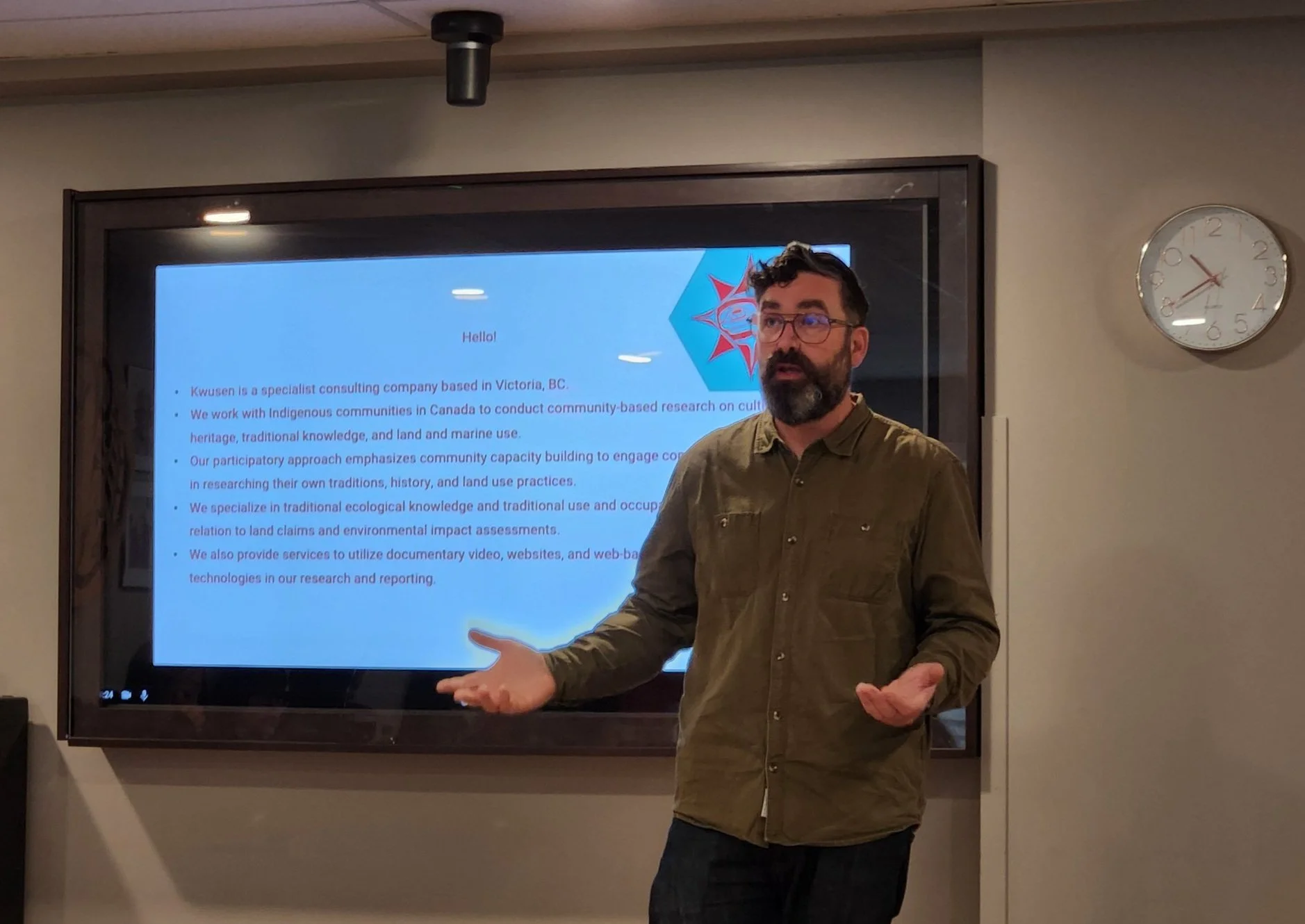Whiteswan Environmental Interview Methodology Training
Co-hosted by SȾÁUTW̱ First Nation, the Kwusen research team began the new year offering an Indigenous Rights and Title Interviewing Methods training to a group of staff and youth leaders from SȾÁUTW̱ and Whiteswan Environmental (WE). WE is based in Lummi Nation, Washington, and is devoted to ecological health and protection for all in and around the Salish Sea. They are a multi-faceted organization that supports Indigenous public health and food sovereignty among other goals. As cofounders of WHATCOM Intergenerational Highschool, WE also supports field-to-classroom study curriculum.
WE approached Kwusen for training to support their upcoming and ongoing projects after receiving a referral from their relations in SȾÁUTW̱. Their projects aim to document Indigenous cultural and ecological knowledge in a respectful, detailed, and reliable way to preserve it for their community. The training catered to their desired project and educational outcomes.
Our week began with a presentation from Kwusen’s Towagh Behr on the history of Indigenous Rights and Title mapping, breaking down the legal precedents and methodology to demonstrate the origins, efficacy, and modern implications of interview and land-based mapping in this style.
Taking direction from WE and building on their experience, the remainder of the training curriculum was customized to focus on interview methodology and best practice, data organization and storage, and mapping using Google Earth Pro software.
For the remainder of the training, Kwusen researchers shared about interview methodology as well as insights from their combined years of experience in a variety of interviewing contexts. Our conversations highlighted how to ensure an interviewee is comfortable and that they and the knowledge they share are respected at every stage of research - from participants’ informed consent to diligent data management.
While Kwusen’s data management strategy usually involves our Community KnowledgeKeeper software, the principles of data organization and management apply whether or not you are working with a software. These principles include systematic saving, labelling, storing, and backing up all files from interview preparation to completion, including in Google Earth Pro.
Towagh and Sarah interviewed Whiteswan Environmental Co-Founder Suhunep Husmeen, Troy Olsen, to illustrate all of the detailed steps taken to support a successful interview and how to implement interviewing principles in a natural manner. The training participants broke off into groups in the subsequent days to practice interviewing and mapping with assistance as needed from the Kwusen team.
It was a pleasure meeting and working with the WE leadership, staff, and youth participants from WHATCOM Intergenerational Highschool and SȾÁUTW̱ First Nation! We wish them all the best as they continue to accomplish incredible work, and look forward to any collaboration in the future!




